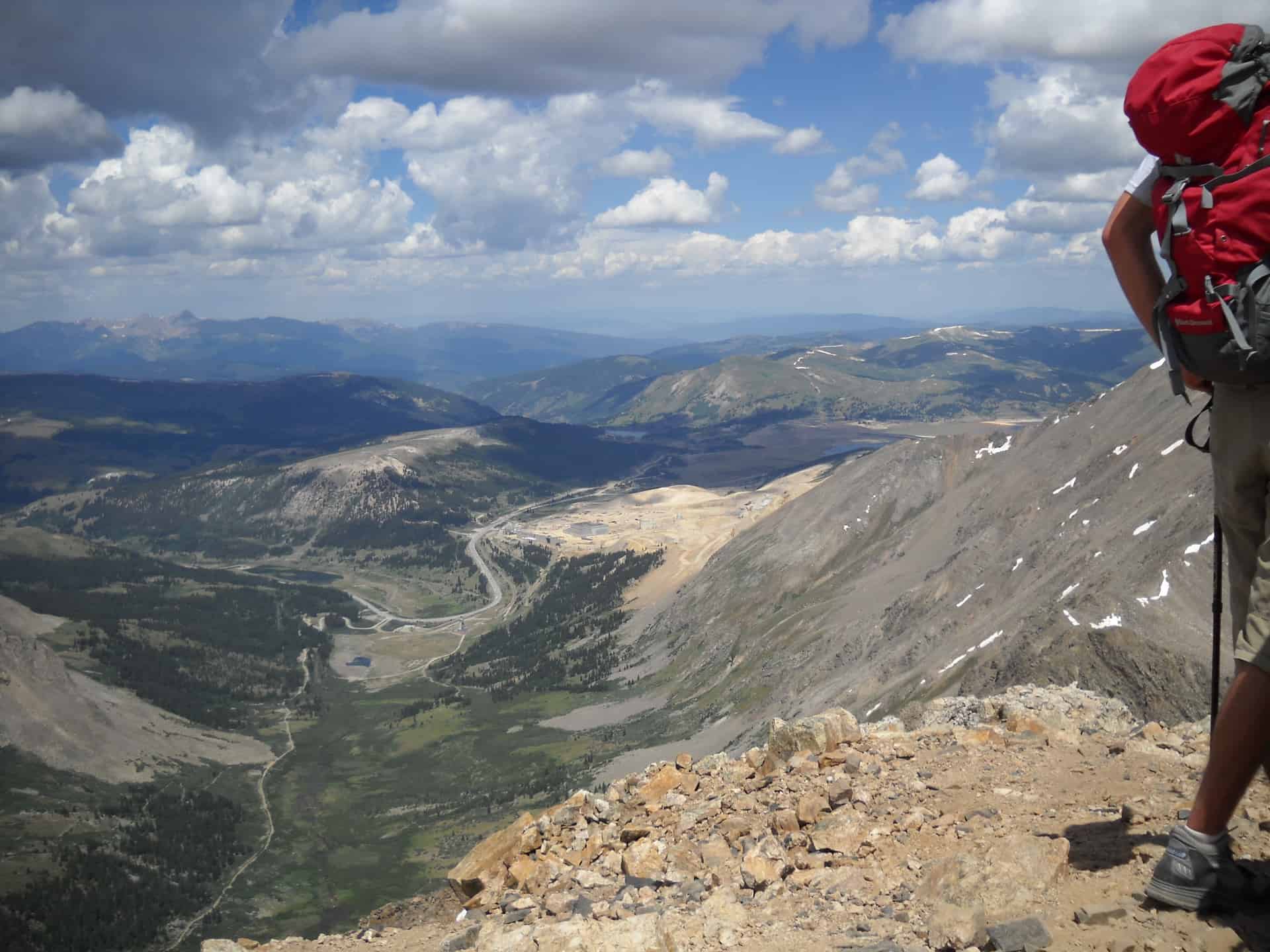In the Denver Post today we see a story about Salazar returning to Colorado and all the useful things he might do What I thought was interesting, given our discussions on this blog about him, was this paragraph:
But his current higher-profile gig meant more mano a mano with energy companies and Republicans. After the Deepwater Horizon well explosion, he imposed a temporary moratorium on the drilling technique and grew oil and gas regulations that infuriated the GOP on the Hill.
Obama on Wednesday congratulated Salazar for his work in this area.
“Ken has helped usher in a new era of conservation for our nation’s land, water and wildlife,” he said in a statement. “Ken has played an integral role in my administration’s successful efforts to expand responsible development of our nation’s domestic energy resources.”
Even Salazar’s biggest foes universally wished him luck Wednesday — but noted they hoped to work with another Secretary who would better serve energy interests.
“I’d like to thank Secretary Salazar for his service,” said Rep. Cory Gardner, R-Yuma. “He has worked very hard the past four years and no doubt sacrificed time away from his family in order to do the job. I look forward to working with his replacement on what I hope can be pro-growth energy policies.”
From an energy-company vantage point, Hercules Offshore executive Jim Noe agreed.
“We remember the tough days that followed the Deepwater Horizon incident during which Secretary Salazar presided over a moratorium on permits that created significant uncertainty for energy production and energy security,” he said. “The legacy of the Interior five-year plan has charted a course for the fewest lease sales in a generation.”
In the coming years, Salazar may try to renew some of his Republican friendships in Colorado and strengthen his moderate tone to appeal to a swing audience.
“Clearly there were troubles on his watch,” said Craig Hughes, a Democratic consultant who ran the successful Obama campaign in Colorado last year. “But he is seen as a problem-solver, of trying to get things done. Regardless, he probably comes out of this with more enemies, and he probably comes out of this with more friends.”
It’s interesting that this focuses on enemies made in the oil and gas industry, while we have mostly discussed here his foibles according to environmental groups. I suspect because there are few outlets that report both sides of the story.
but check out the Denver Post editorial page here, that lets us know that both sides were unhappy…
They say Interior under Salazar has suppressed energy production through of unnecessary red tape and onerous rules. And while we have no desire to defend every regulation, the fact is that the previous administration drifted too far in the other direction. Its Minerals Management Service had been an Animal House in which employees not only partied with industry executives but also, according to a federal probe, “had sexual relationships” with some.
“In the prior administration,” Salazar said one year after being on the job, “the oil and gas industry were the kings of the world. Whatever they wanted to happen, happened.” He exaggerated, to be sure, but with a grain of truth.
If anything, Salazar’s Interior didn’t crack down fast enough along the Gulf Coast. Indeed, before BP’s Deepwater Horizon blew in April 2010, the Obama administration had been authorizing offshore permits without adequate environment reviews as fast as its predecessor.
Nor has Interior under Salazar always left environmentalists cheering. They’ve objected to decisions allowing limited drilling in the Arctic, lifting protections for the gray wolf in several states and refusing to use the polar bear as leverage to address climate change.
Salazar said this week that his proudest achievements include expediting justice for American Indians after years of litigation over trust lands and breaking the logjam for clean-energy projects on federal lands.
It’s also interesting that now Salazar is a good guy about his past activities..
CARBONDALE —Foes of natural-gas drilling in Thompson Divide would like to see Interior Secretary Ken Salazar take the same action when he leaves office in March that he took when he started the job four years ago.
Salazar, a former U.S. senator from Colorado and native of the San Luis Valley, canceled oil and gas leases on 77 parcels of federal land in Utah in February 2009. He said drilling posed too much of a threat to spectacular landscapes in areas such as Arches National Park and Dinosaur National Monument.
Conservation groups are trying to prevent additional land in the Thompson Divide area west of Carbondale from being leased. They also want to work with oil and gas companies to “retire” existing leases.
Thompson Divide is a 221,000-acre expanse of public land that runs from Sunlight Mountain Resort to McClure Pass, west of state Highway 133. Roughly 100,000 acres of public land in the area have never been leased, said Peter Hart, attorney for Wilderness Workshop, one of the organizations fighting gas drilling there.
U.S. Sen. Michael Bennet is drafting legislation that would prevent future leasing in the area, but it faces an uncertain future.;
Are these the same parcels that were were going to be bought back based on this article?
Yes, Wilderness Workshop did sign the letter supporting Grijalva that we discussed here. As Andy said in his first comment on that post, strange way to win friends and influence people.
My lesson from all this is that working in natural resources may be hazardous to your relationships. And for some reason if the Denver Post were to succumb to pressures facing journalism, who would be left to tell both sides?
 Here is a thoughtful essay by Sarah Gilman of High Country News.
Here is a thoughtful essay by Sarah Gilman of High Country News.